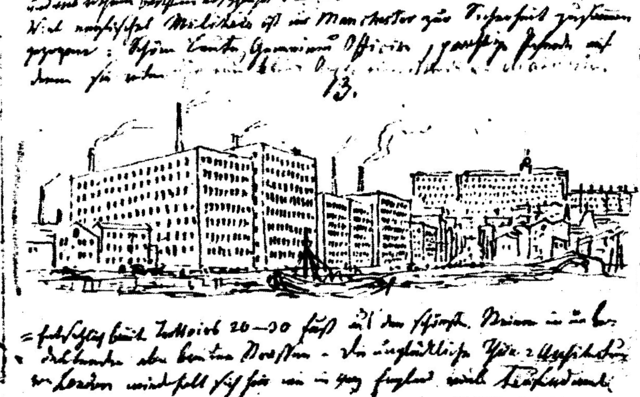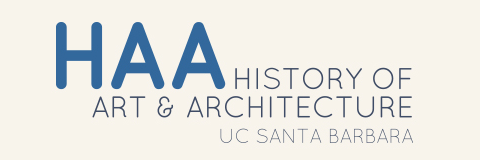Event Date:
Event Location:
- Image Resource Center
- Digital Image Lab (Arts 1245)
Event Price:
Free and open to all members of the UCSB community

Karl Friedrich Schinkel, Manchester, Panoramic view of Old Town and cotton mills, 1826
Using Scalar in Building the Modern World: Keywords
Swati Chattopadhyay
Please join the History of Art & Architecture's Image Resource Center for a Digital Image Lab (DIL) Mapping series talk by Professor Swati Chattopadhyay on Thursday, May 25 at 4:00 PM.
In August 2022, Professor Chattopadhyay invited advanced undergraduate and graduate students in architecture, art, architectural and urban history, or a related field to virtually participate in her Building the Modern World: Keywords workshop. The goal of the workshop was to mentor students in methods of conducting research on nineteenth-century architectural history and creating scholarly content for publication in a digital platform.
The Keywords project focuses on the long nineteenth century, a period foundational to the modern world. Colonialism, long-distance trade, capitalism, slavery, plantation economy, and the industrial revolution connected distant parts of the world, wreaked havoc, destroyed landscapes as well as economies and livelihoods, generated new ways of thinking about buildings, cities and landscapes, and gave rise to new spaces, new technologies and new publics. New building types such as the railway station and tall office building were created. A host of terms from “City Beautiful” to “slum” were coined during this time, and other terms given a new turn to describe and comprehend the emergence of new social and spatial relations. This project aims to reflect on what these terms meant, who coined them, how they were connected, and how might these terms help us today to understand the modern world we have inherited. Instead of following a traditional chronological or national/regional approach to architectural history, the project and the chosen platform encourage cross-referencing and cross-tagging to help readers discover non-linear relations across time and space.
